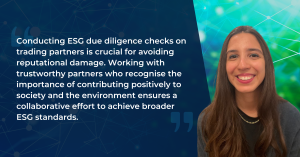How Compliance Software Can Alleviate Regulatory Burden
In today's rapidly evolving business landscape, regulatory compliance has become a significant challenge for financial institutions and other regulated industries. The ever-changing and complex regulatory requirements place a heavy burden on organisations, leading to increased costs, resource allocation, and operational inefficiencies. However, a silver lining appears through the rise of compliance software, which serves as an innovative solution to manage the abundance of regulatory requirements...
























